Ilya Kukharchuk first played in the RPL in 2010, when he was an Anzhi player. Then the 20-year-old played 12 matches for the Makhachkala side and scored two goals against Spartak Nalchik. He next played in the Russian Premier Liga 10 years later. In between, Kukharchuk played for Anzhi youth team eight FNL sides, until he returned to the top flight with Khimki.
Now he is one of the team's leading scorers with five goals, and in December, thanks to a four-game scoring streak, he was named RPL Player of the Month.
"In recent matches, I did not celebrate goals – VAR did not allow me to vent my emotions"
– After the Rubin match, you said that you would spend the weekend in Kazan. How did you rest during the break?
I saw all the people close to me, my wife's relatives. We both went to visit, and took them ourselves – just had home gatherings.
– Your wife is from Kazan. Have you known each other since you were at Rubin?
Yes, we met in a corny way – in some club where young people hung out. Now, probably, people meet more on the Internet, but we met in person. Then we did not communicate for some time, but we have common friends – for example, Igor Portnyagin [played for Rubin from 2008 to 2016 with breaks, RPL champion in 2009 - Premierliga.ru]. We found ourselves in the same company and began to communicate more closely. We've been together for nine years.
– When you scored against Rubin, it was obvious that you were holding back your emotions. How do you still feel about this club?
I have only positive memories and respect for Rubin, but in recent matches I have not celebrated goals at all; VAR doesn’t allow me to vent my emotions. Let's take my goal against CSKA: there were doubts, so I didn't celebrate at first, but when it was given, I was very happy. Then the goal against Arsenal, again I don't react – suddenly VAR will be watching. When it turned out that everything was fine, I was happy again at once.
The next goal was against Lokomotiv. I scored at the death, an emotional moment, but VAR looked at a possible offside. Again, I was not happy – more confused – but in the end, the goal counted. I thought to myself: yes, emotions are good, but it will be doubly disappointing if the goal is not counted – I will be more upset. Therefore, at first I behave calmly with restraint.
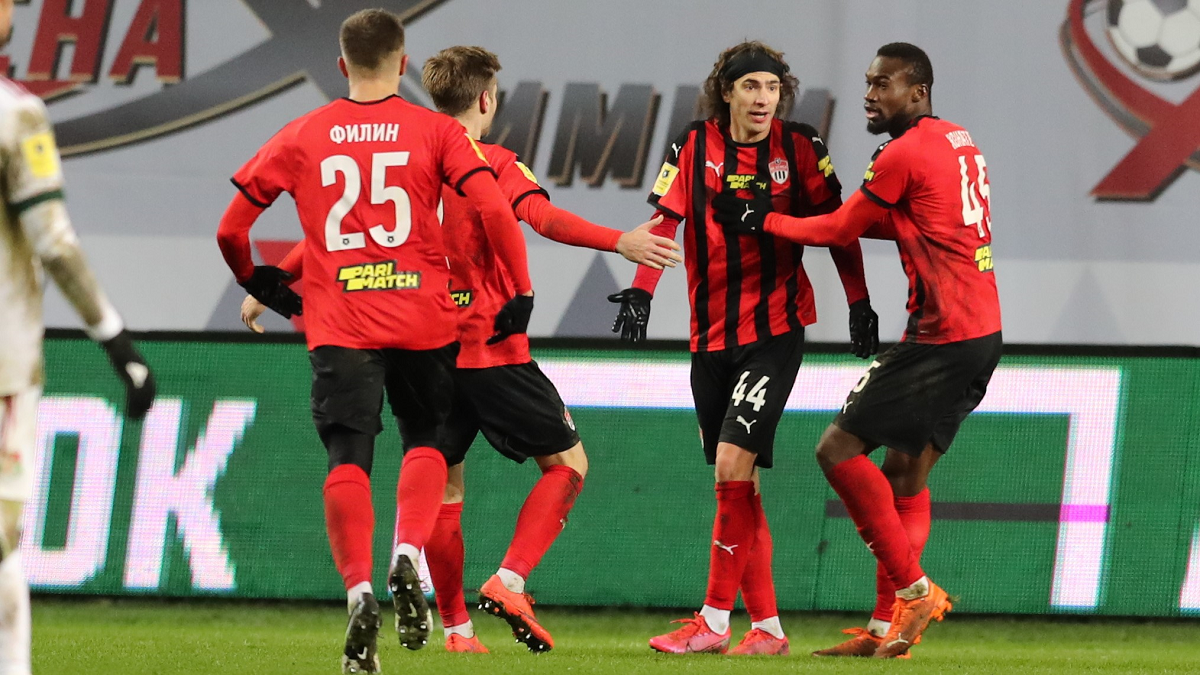
– You encountered two championship teams in Rubin, even if you were playing for the reserve team back then. What did it look like from your perspective?
I trained steadily with the main squad, so I saw what was happening on the inside. It was a very disciplined team, too much so. This discipline was diluted by Sasha Bukharov, who always found something to say on theories, even to make a joke. Berdyev's severity was off the scale: when he went to the training ground, everyone tried not to breathe.
This discipline gave results. There was no such thing that everyone just strolled out onto the pitch, although for the first time they became champions three matchdays before the end of the season. The guys started playing their game, never adjusting to the opponent, and playing very strictly defensive football, which brought success. Very often the matches ended 1-0.
Young people, of course, were allowed to join the main team, but only for training. There was a contingent of players above middle age, plus very strong foreigners: Karadeniz, Dominguez, Ansaldi, Navas, and Noboa himself. However, I still remember Christian from the fact that after the games of the main team, we often held two-way matches with those who did not play in the matches, and he participated in them. But now Noboa is proving that he is still a very high-level footballer.
"Berdyev has a very cool technique, he calmly feinted”
– Berdyev invited you to work with the main team, but he released you only twice in the Russian Cup. What was the result of working with him?
I was young then and did not absorb information as now, I was not so attentive to various tips and tactics. I just remember how once Berdyev stayed after training and taught me to hit in the far corner. My knees were shaking: I stayed to work a little bit, and then the head coach was with me – I couldn't finish out of fright, but you need to show that you are not an outsider in football.
This is well stored in the memory. I would say a big thank you to Berdyev for taking me to the training camp with the main squad and pulling me up for training. Thanks to this, Gadzhi Gadzhiev noticed me and called me to Anzhi. He was with us at the same training camp and paid attention to me.
– Did Kurban Bekievich try to calm you down during that training session?
No, he doesn't say much at all. Most of the classes were conducted by Aleksandr Matsyura, his assistant. Kurban Bekievich switched on periodically – for example, at the beginning of training or when everything was very bad. He would come over, take out a board and start explaining, but mostly he would watch the training process from the sidelines.
– Alexander Gatscan said that sometimes Berdyev could stop training and almost lead the players by the hand.
That happened, too. I even remember that sometimes he participated in training because there were not enough players. He calmly dipped his shoulder, he has a very cool technique. I remember how he used to take me on – and me him, too. I didn't let him shoot past me, I just rolled back and forth, and nutmegged him twice.
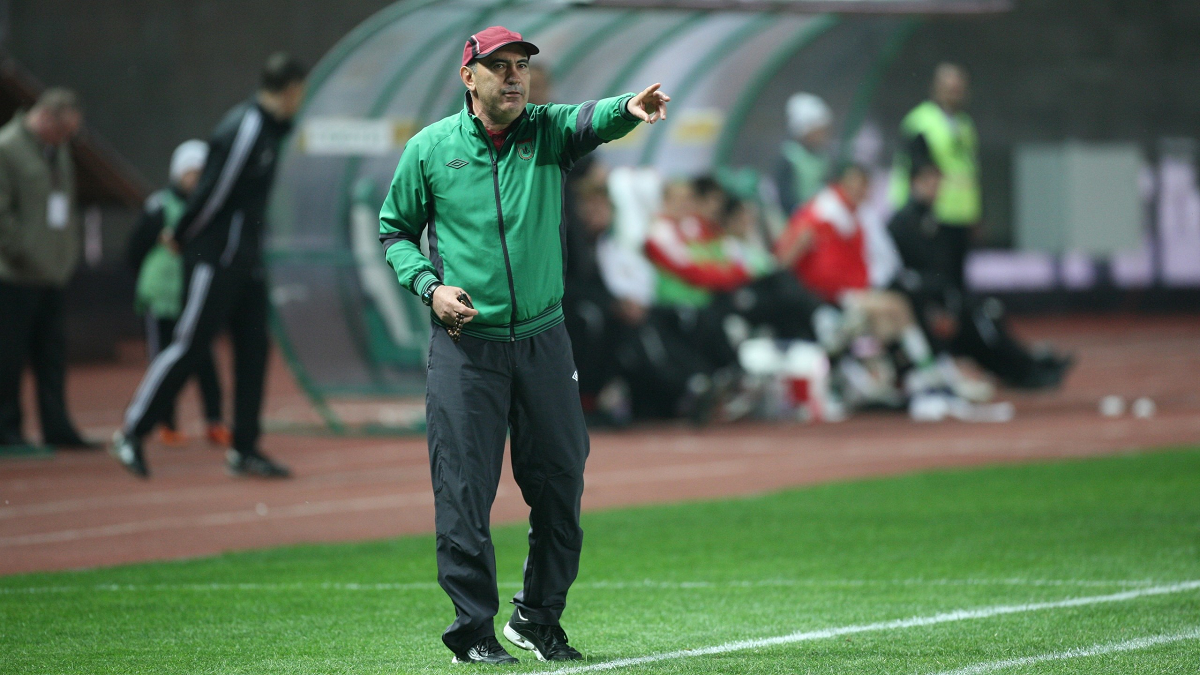
– You remembered that Matsyura constantly criticized you. How did you take his comments?
Very painfully. Everything I did was wrong. Makhach Gadzhiev even stood up for me once, he said: "That's enough, the kid didn't do anything like that, you're choking and choking him." Maybe it was such a technique for young players, but it was very tough to take.
– What words are forever etched in your memory?
Nothing specific, just some situations. For example the reserve team finishes lunch, and Maciura is on the porch smoking or drinking coffee. He sees us and says, "Oh, young people, come to me." He pulls out a board and starts talking, although we have a training session in an hour or two. He could spend an hour just telling us how to play football. In the dining room, he could approach, use straws, even toothpicks to show systems.
– With your next RPL opponents, Zenit, you also have a personal history – even before Rubin, you went there on trial. What details do you remember?
I came to the second team on trial, and stayed at the Smena academy training ground. I trained for about a week, didn't make the grade and left. There was nothing particularly memorable.
"I was grateful to Cherevchenko when I got the chance to play in my favorite position"
– Igor Cherevchenko coached you not only at Khimki, but also at Baltika: he went to Kaliningrad after Lokomotiv. What impression did he make on you then?
Both he and I needed time to adapt, because it is difficult to come to the FNL after a club like Lokomotiv, and even save a team that is being relegated. Igor Gennadievich was reserved on emotions, he is a laconic coach.
– How much has he changed?
Now there is more dialogue, emancipation, humour, because we are getting good results, thank God, and time has flown more quickly than at Baltika.
– With his arrival, you began to feature in the squad. How did you understand that Igor Gennadievich was ready to entrust you with a place in the squad?
I realized this only before the game with Dynamo, when I heard the starting line-up. Yes, I was familiar with Cherevchenko, we spoke, but I didn’t get how he saw me at Khimki. When I got the chance, I was sincerely grateful to him and happy that I had the opportunity to play in my favorite position. I still try to give my best in every match, no matter how much time I have on the pitch.
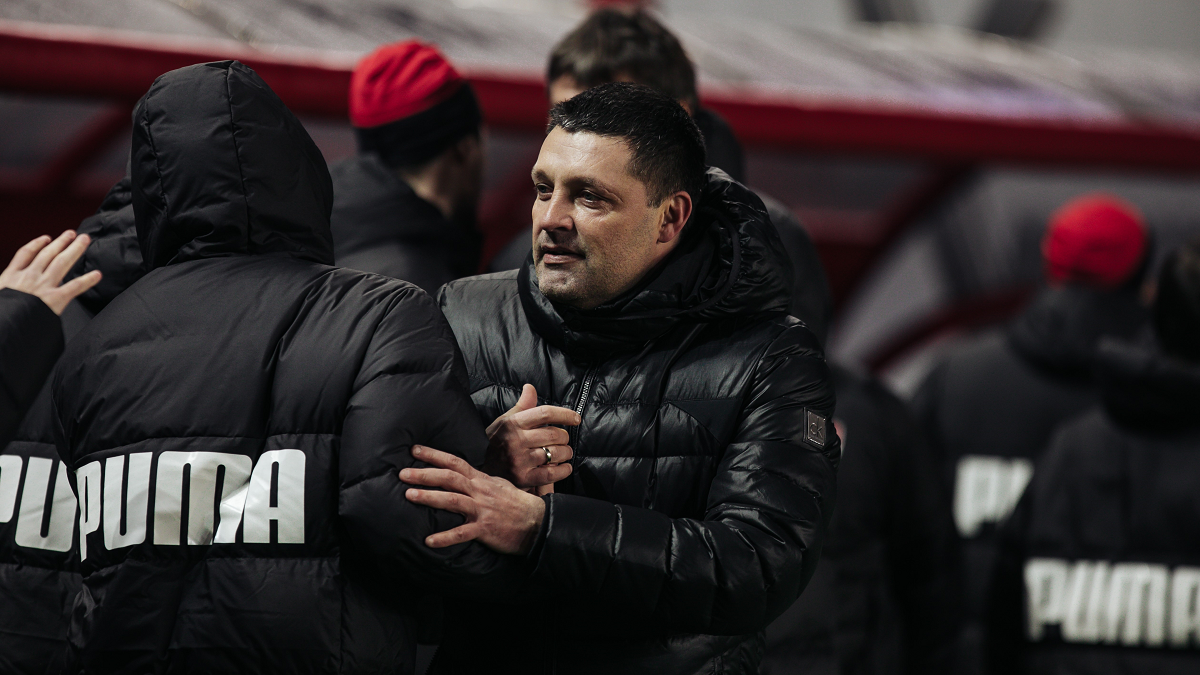
– The team hasn’t lost for 10 matches in a row. What, together with the results, helps to maintain a positive atmosphere?
We have gathered guys without any selfish goals or bitterness. Everyone understands that we take one game at a time; no one has announced a fight for European cups or anything else. There’s a huge difference between what was at the beginning of the season and what is now. If someone had been told that this would happen, no one would have believed it. We don't miss the stars from the sky; we are hard workers, and we take small steps up. It's good that we're doing it now.
– There are still players who want to prove something: for example, Reziuan Mirzov, who was loaned from Spartak.
If you take Mirzov, he came on loan to prove that he should play at the highest level. By the way, we have known each other for a long time – we met in Nalchik. Take our captain Dima Tikhy – he is our rock at the back, and strives to get into the national team. I really wish him this, because he is worthy of a call-up. I won't say anything about myself, because I've been proving something to someone all my life.
– Your performances in November and December earned you the RPL Player of the Month award. What factors led to this scoring streak?
Everything was as it always has been. I can't single out what I did differently. Probably the main factors are the trust of the coach and my teammates. No player can do without these factors.
– You said then that it was as if you were experiencing a second youth.
The state of mind and body is amazing, the legs run, the head thinks – that’s how I see it. I could run the whole game and feel good. I will also say a big thank you to all the medical staff, they provided a top-quality recovery. Thanks to this, we approach the games in good shape.
– This year started for you with the first red card in your career, and you were very worried at that time. What thoughts did you have at that moment?
The very first thought when the referee showed me the card was that it was unfair, because in my opinion, I didn’t deserve the first yellow card. For the second I let the team down. The guys still had 20 minutes to play, and everyone was so tired to make matters worse. When I left the pitch, I prayed that the guys would hold out and win against Ufa. I was also angry with myself. Having got my first yellow card, I had to be more careful. I went into the challenge and didn't see the defender at all, but I hit him in the face with my hand.
– Did this episode affect the fact that you started the next two matches on the bench?
The coach is responsible for the result, and the team won both games, so it was the right call. Naturally, I was worried that I was not playing in the starting line-up.
"At Shinnik, I realized that it was time to clear my head – everything was going wrong"
– You made your debut in the RPL for Anzhi, and Gadzhiev then called you a gifted player. How difficult was it then to play against adult opponents?
I didn't pay much attention to it. Of course, it was difficult to take such a jump from the reserves to the main team, and get playing time. Then I played on my emotions and did not think whether it was difficult or not. I gave my best, and ran back and forth.
– You found a change of course at the club when Roberto Carlos, Mbark Boussoufa and other high-status foreign players appeared. How did you take these changes? Moreover, at that time you were not with the team.
After New Year, I attended one training camp with Anzhi where there was only talk of some changes. Then I went to the youth team, got a back injury and returned. I missed the second training camp completely; I just flew to Turkey and trained individually. Then I decided that I couldn't cope on my own, so we had to go to the sports medicine clinic. I started treatment in Moscow when the team was already at the third training camp, and there were changes in the club. I learned about everything only from the news or calling my friends. When I returned four months later, the team had already moved to Kratovo and was completely different.
– How did you get used to the new reality when you returned to the training ground?
I was a young guy surrounded by football stars – I got a buzz every day of training.
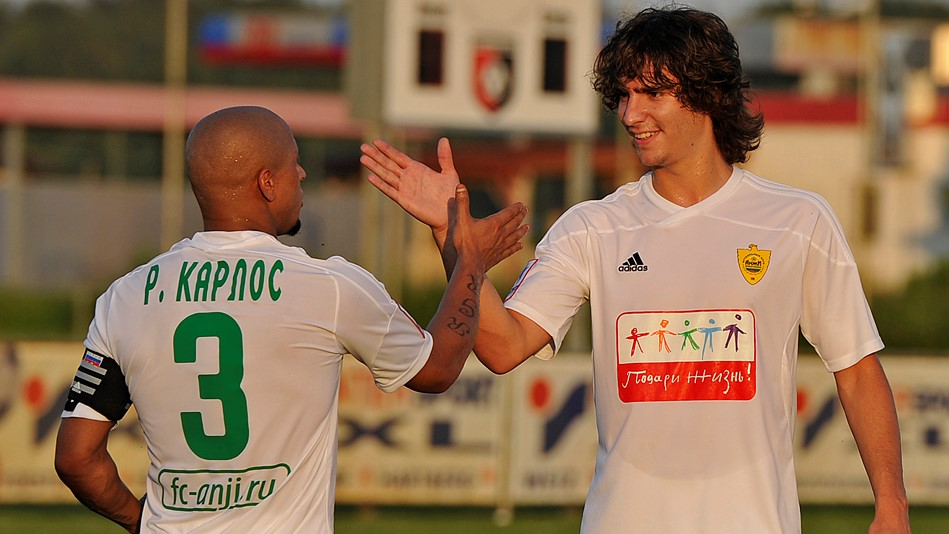
– You admitted you thought: “It’s nothing, now I will quickly win a place here in the squad, but in fact I was not even given a chance." Why did such confidence arise?
Yes, I thought that I would get playing time, I never doubted myself. It was self-confidence. Over time, I realized that a place in the starting line-up and even in the squad is very difficult to achieve, and asked to be sent to the reserves for match practice.
– How did you come to realize that there would be no chance?
I always worked with the main team, ready to play as part of the squad. I really hoped that sooner or later I would be given a chance to break out, but I didn’t wait.
– Another memory of Anzhi: "Back then, I treated football as if it would always be in my life. It's like playing for a major league team is a given." What moment convinced you that you were wrong then?
When I went on trial at Krylia Sovetov after Nalchik. At Spartak, I didn't get into the squad at all, I was just present and thought: "No, I'm a football player." I went on trial with Krylia, but it didn’t work out due to a combination of different circumstances. I went to Shinnik and realized that I was returning to my roots, and it was time to clear my head. Everything was not going the way I had thought a couple of years ago.
– You said that your father also expressed the same to you.
My father always tells me when things don't go right. He always tried to keep me in good shape, but because of my youth, I didn’t pay attention to this.
– Have you achieved this reinvention yourself?
Yes, but it didn't work out right away. It seems that one day you think: "That's it, I'll clear my head." On the second: "I'm too lazy to go to the gym." You go to the third, but you don't want to go to the fourth again – there were such moments that, like, you understand, but you don't do anything.
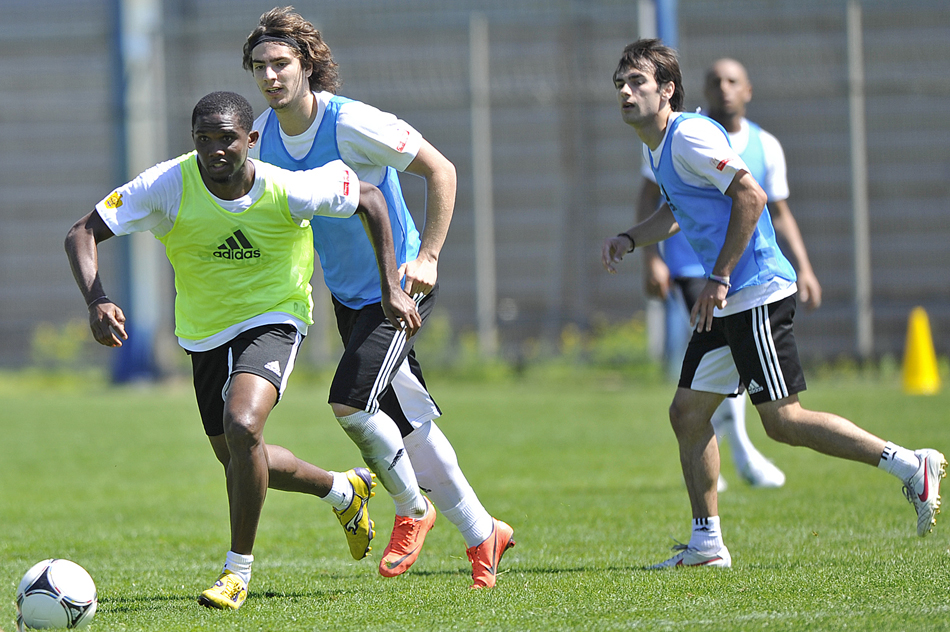
"I had a contract from Kazakhstan, but I wanted to play in the RPL"
– When was it possible to find some peace of mind?
After Shinnik, I went to Volga, played well for the first six months, and received an offer from Rubin. I thought that everything was already done. The negotiations were plentiful, we discussed specific conditions, but it did not work out. The former general director Oleg Aleshin could not agree, as I know. I had almost a psychological breakdown: I already had one foot in the door at Rubin, I collected my things, but bam – something went wrong. Then, in general, the team in Nizhny changed.
I left Volga for Enisey, but there were misunderstandings with Andrey Tikhonov. I did not suit him as a football player and left for Baltika. I am grateful to Igor Kudryashov, who for many years called me to Tom, but for one reason or another it was not possible to go there. After Tambov, another personal disappointment, I called Igor Vladimirovich, and we decided that now is the time. In Tomsk, I already started a psychological recovery.
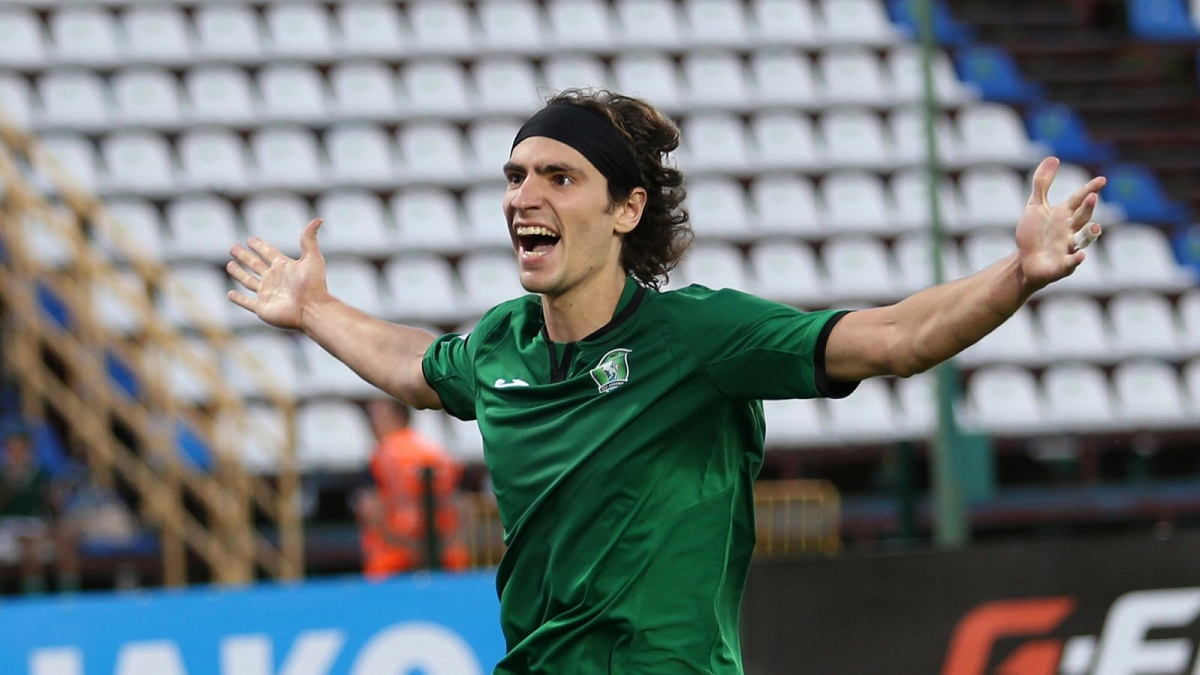
– How would you explain this rise?
First of all, I understood that Kudryashov believed in me as a person and a football player. Head coach Vasily Baskakov was not particularly involved: the player does the job, that’s all. I got the impression that he was a man of few words after working with him. Aleksandr Familtsev, the assistant coach, diluted all this with positive emotions.
Plus, Tomsk has an amazing atmosphere in terms of fans. Everyone knows that Siberians are very friendly and kind people. The team was also cool. On top of that we were winning, but there were financial problems. If it were not for these difficulties, I think that team would have performed well in the RPL. We were in second place behind Tambov, which had a better financial condition than us. We battled on our own, but when the governor of the region said that we were not ready to go to the RPL, the whole team scattered at once.
– You warmly bade farewell to the fans – you wrote a poem.
Yes, I wrote it all myself. There are times when it gets too much. For me, it is not a problem to find a rhyme to the words. The inspiration came after I broke my contract, and I decided to say goodbye in this way not only to the fans, but also to the players and managers. I tried to touch everyone, because it was a really top class time.
– When you moved to Khimki from Tom, you said that you still wanted to return to the RPL and even rejected offers from abroad – you had an offer from Kazakhstan. Why didn't you want to try yourself in another championship?
I called the sporting director of the Kazakh club, I even had a contract in my hand – all that was left was to sign it. But my specific goal was to play in the RPL, which I've been striving towards for several years. I didn't want to disrupt everything after a good season at Tom, so I didn't go to Kazakhstan. It’s much harder to return from there than from the FNL in my opinion.
– At the end of 2020, Khimki extended your contract for a long-term period. What ambitions do you see in the future of the club?
I hope that they reach the highest levels and that we will have a long and fruitful cooperation. Thank God that now I can play like this, it's good, but there is always something to strive for. I will do everything to make it even better in the future – work, endure, go out on the pitch and, as I said a couple of times, make a difference.
"When I played against my brother, I talked to him the whole game "
– Khimki team leader Sergey Yakunchikov said that you are a very religious person - you’ve been seen with a lot of icons. Where does such a strong faith come from?
I don't even remember the moment when I started putting icons in the dressing room. I know for sure that I bought some of them in Makhachkala, and they are still with me. I have a religious family, but no one forced me to believe. I just looked at my mother, she is a very kind and open person who always prayed and went to church. As a child it was in my mind, and somehow went. Now I don't even like changing rooms without lockers, where you can put icons. When we came to the Centralny Stadium in Kazan there was nowhere to put them. In such cases, I put them on the windowsill or find some other place.
– Your family sometimes comes to Khimki, such as your parents and younger brother Dmitry, who is also a football player. Was your childhood together as football-friendly as possible?
My dad is a very big football fan. He himself wanted to play, but before the worldview was different, and he decided to invest his dream in children. When I was six, I went to play football with nine or ten-year-olds, and when Dima was six, he joined a team my age. When all the children went on summer camps – I always dreamed of going too, but never did – I had a training camp in Kostroma. And they were peculiar: we came in the morning, left in the evening, there were cross-country runs, training on pitches, swimming pools, and food. Everything was cool. I’m grateful to my first coach, who did these training camps.
– Once you met your brother in the youth championship; you played for Anzhi, and Dmitry for Rostov.
I talked to him the whole game, telling him what to do. At that time, I already had some status as an RPL player. I was training with the Anzhi main team, but playing for the reserves. I really wanted my brother to look decent, and in some episodes, during drinks breaks, I whispered how and what to do, as I saw it.
– From the outside, this picture looks funny – a player of one team advising the opponent what to do...
No one picked up on it!
– Dmitry never made it above the second tier. Do you know why?
Sometimes outsiders stumble into football and play, and there are guys who work through injuries but find spanners in the works – so it happened with my brother. He was never lazy, unlike me – I said in an interview that my head was a mess. Dima generally looked differently: he trained, went to the gym, but it didn't work out. We thought that at Kostroma he would prove himself. At Spartak the team suited him, but even at this level, the sporting director picked other players – they played, and Dima got less playing time. Then the club closed down altogether.
– Dmitry's last club is listed as Rosich.
He played there until last year, then moved to FSM [Youth Football School in Moscow – Premierliga.ru]. Now he lives in Moscow and plays in the amateur league.
– Does he expect to break back to the professional level?
It all depends on the offer. He has regular football practice and gets paid for it, while also running another job. Dima is a smart guy: he graduated from university himself and creates websites and other computer-related things. You’ll have to ask him whether any offer will be able to interrupt his main work.
– You are still 30 years old, but do you already understand what you want to do after your playing career?
I want to stay in football, but in what role God knows; perhaps coaching or as an agent. While I have football in my head and having finally made it back to the RPL my desire is to play as long as possible. It is worth thinking about the future, but it is too early to make a guess.
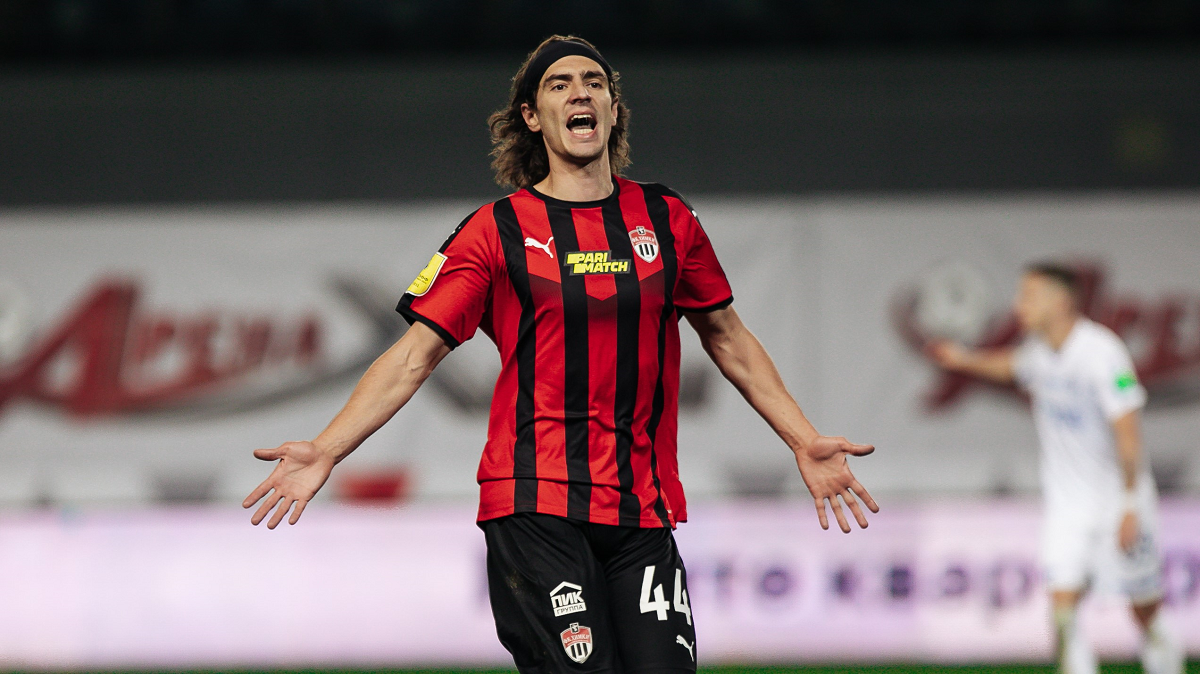
Photos: Konstantin Rybin/RPL; Rubin Kazan; Kristina Korovnikova/FC Khimki; Tom Tomsk; Sergey Rasulov/Anzhi





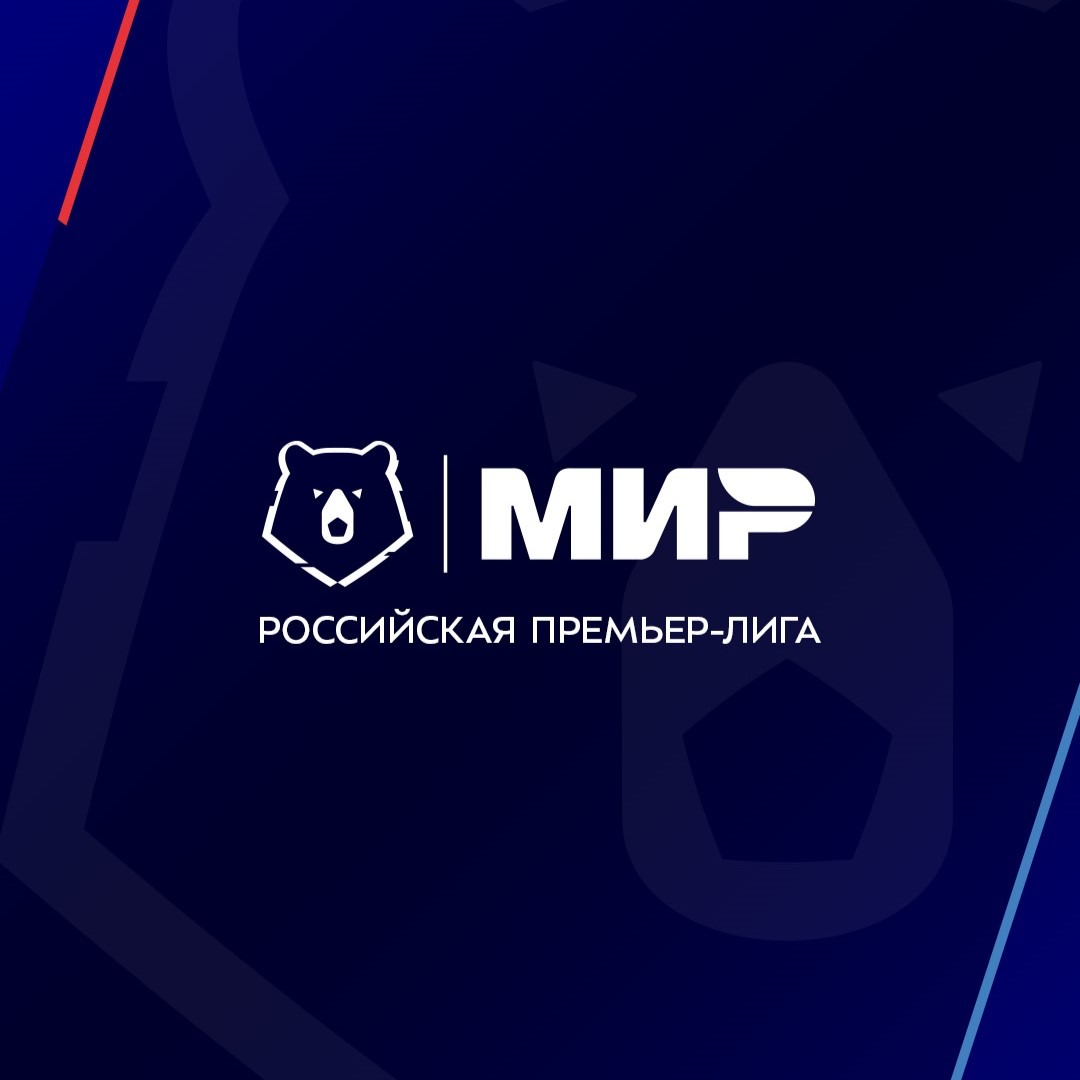
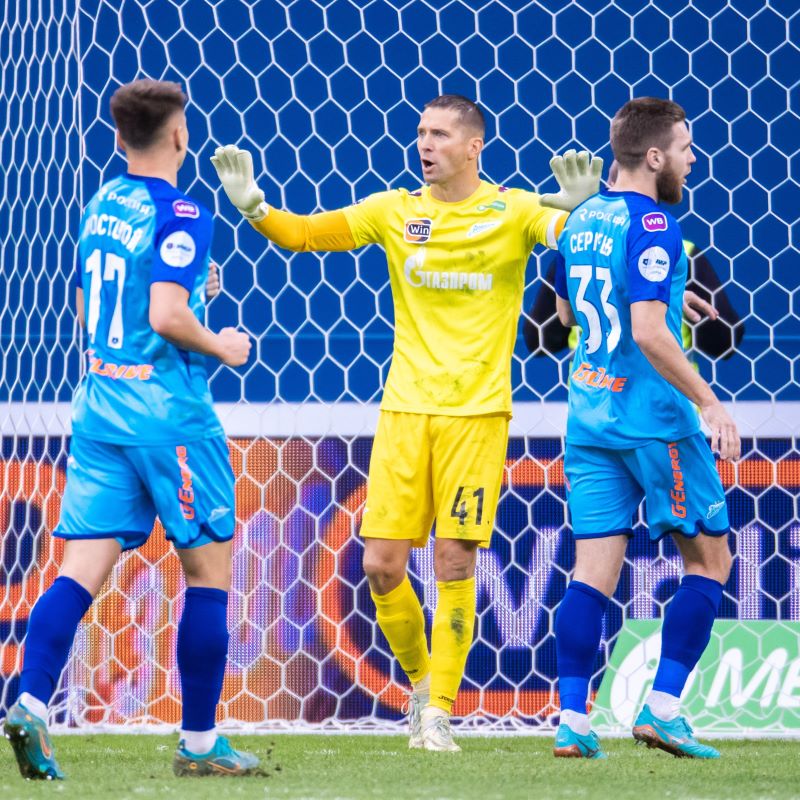
Обратная связь
Вы можете обратиться в РФПЛ с интересующим Вас вопросом или оставить сообщение (пожелание, замечание). Также вы можете сообщить имеющиеся у вас сведения о "договорных" матчах.